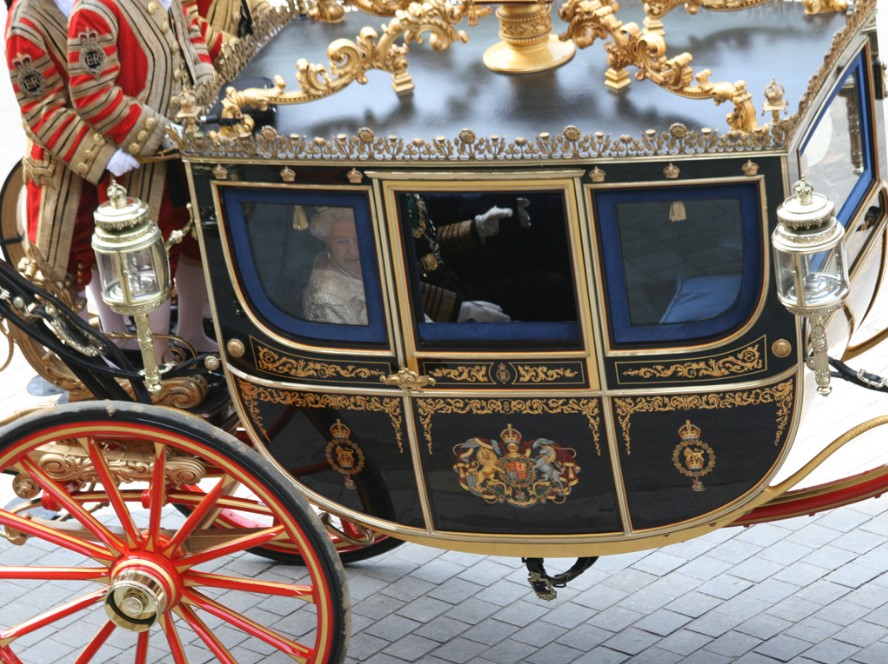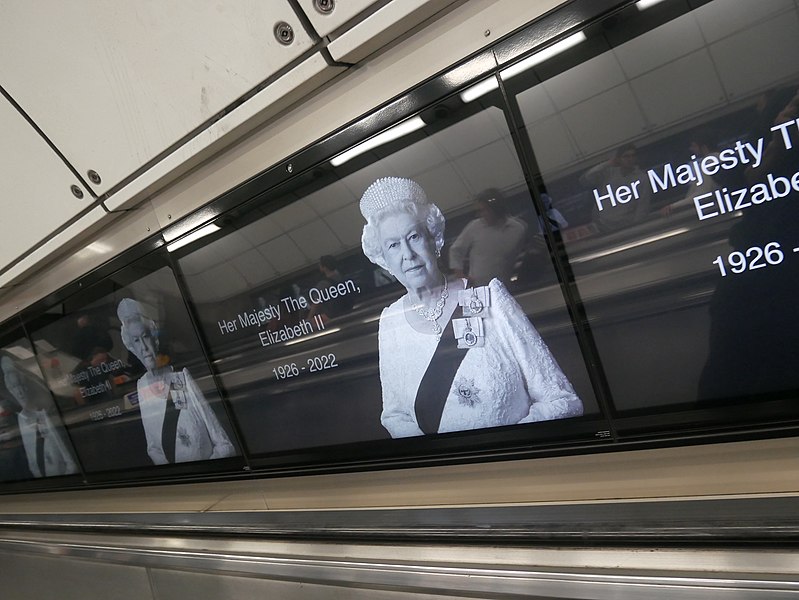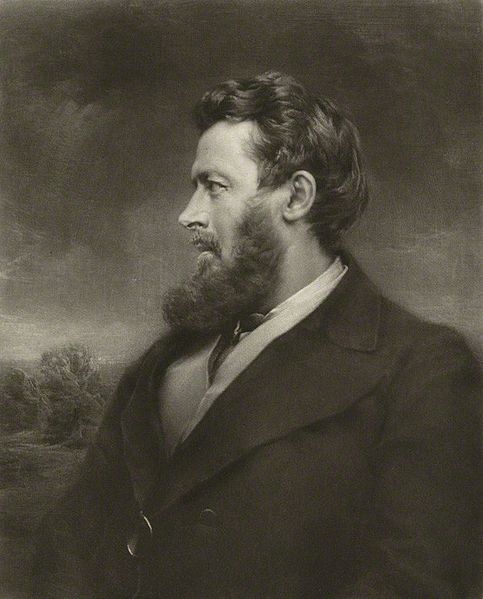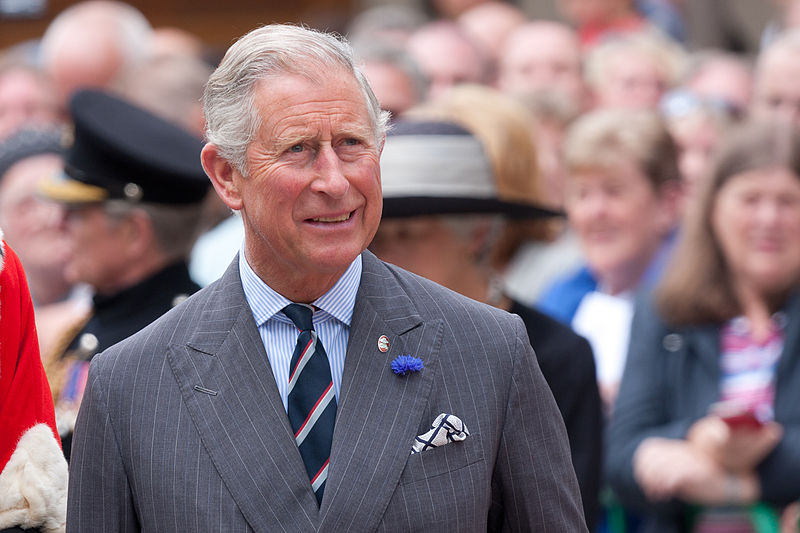
The Italians have a phrase for it: È Finita la Commedia – the comedy is over. After 10 days of officially imposed ‘national mourning’, on Monday 19 September at Westminster Abbey – the historic church where Britain’s kings and queens are crowned – the state funeral of Queen Elizabeth was held.
It must be confessed that nowadays nobody does this kind of thing better than the Brits. And why not indeed? They have, over a period of many generations, developed it to a fine art. And at a time when the masses feel the need for such things, they can play a very useful role in distracting people’s attention from the most-pressing problems.
When the people are being constantly urged to make sacrifices and accept deep cuts in their standards of living, no expenses were spared for the Royal Pageant. Never mind that millions of families in Britain are having to choose between heating their homes and putting food on the table. The requirements of the dead body of one old lady had to be placed at the top of the agenda.
The Queen’s coffin, topped with the Royal Standard, the Imperial State Crown and the Sovereign’s orb and sceptre, was carried on the State Gun Carriage of the Royal Navy, drawn by 142 sailors, whose services were evidently required in order to offset the rising cost of petrol.
As usual, the Brigade of Guards performed every movement with marvellous dexterity and aplomb. No other army in the world can match their stern discipline on such ceremonial occasions. Others may try to imitate them, but they somehow lack the sense of weighty dignity and gravitas that comes from centuries of imperial rule and the overwhelming conviction that, although Britannia no longer rules the waves, yet we are at least good at something.
And so the Royal Corpse was paraded around London (or at least the posh part, which nowadays is mainly inhabited by wealthy Arab Oil Sheikhs and their hangers-on), the waiting crowds of admirers having been kept at a safe distance by our wonderful British police who have spent most of their time lately arresting anyone who looked suspiciously like a republican.
The whole affair was livened up by a most entertaining musical accompaniment, thoughtfully provided by the Pipes and Drums of the Scottish and Irish regiments, who led the ceremony, along with members of the Royal Air Force and the Gurkhas. The high spot of the afternoon’s entertainment consisted of a most spirited rendering of the Funeral March by Mr. Frederick Chopin.
And so the Queen’s remains were comfortably transported by human labour, accompanied by senior members of the Royal Family, including the new king, affectionately known by his loyal subjects as Big Ears. But who now, so it is rumoured in Court Circles, answers to the name of King Charles III.
His two sons, Prince William and Prince Harry, made a most praiseworthy attempt to conceal their undying mutual hatred behind a truly moving display of brotherly love. Their new step mum, Camilla Rosemary Shand, later Parker Bowles, (AKA Queen Consort of the United Kingdom) made a valiant attempt to look like the Queen.
This proved to be sadly quite unsuccessful, possibly because she is universally detested by the public, though few have the courage to say so in public, for fear of instant arrest and committal to the Tower of London on a charge of High Treason and lese–majesty.
In case you think I am joking, just look at the facts. The whole period of ‘national mourning’ has been described as the biggest security operation ever conducted in Britain, and all dissenting voices were repressed by state forces. An Oxford man named Symon Hill was apprehended after shouting ‘who elected him?’ as he walked past a ceremony celebrating the new King.
Two people were arrested in Edinburgh after one held up a sign reading ‘Fuck imperialism, abolish monarchy’. A third was arrested for heckling Prince Andrew while he walked behind the hearse carrying the Queen. All were charged with a ‘breach of peace’.
A barrister protesting with a blank piece of paper in Parliament Square, spoke to a police officer who confirmed that, had he dared to write the words ‘not my king’, he would have been arrested. And in a particularly farcical incident, a man in Aberdeen was arrested after he was allegedly seen carrying eggs as the Queen’s funeral cortege passed by, on the grounds that he might have been planning to throw them.
This massive display of police repression against the Republican Menace was achieved by denuding every area of the Metropolis, except the small space surrounding the Queen’s departure from this world. London was thus converted overnight to a veritable criminal’s paradise. No wonder every burglar, pickpocket and serial killer in the land will have enthusiastically joined in the universal chorus of “God save the King!”
In short, it all went off splendidly.
The role of the media
Or did it?
For some people, this was undoubtedly a welcome distraction from the evident fact that Britain is now facing the deepest crisis in its history. For a few days, all the bad news about the cost-of-living crisis, the war in Ukraine and the internecine fighting in the Tory Party miraculously disappeared.

From the standpoint of the ruling class, this was a most welcome diversion. And if anyone had the slightest doubt about the magnificence of these proceedings, it would have been put to rest instantly by the unanimous chorus of praise that was being constantly emitted by every single news channel.
It seems that every known bootlicking sycophant in the universe (as well as some unknown ones) had suddenly descended on the capital of the United Kingdom, bringing with them the most stomach-churning eulogies by the bucketful.
These fawning creatures were falling over themselves in the indecent haste to elbow their way onto the New Year’s Honours List. No flattery was too gross, no hymns of praise too extreme for these corrupt courtiers and hired prostitutes. And these very same ladies and gentlemen have the nerve to criticise Vladimir Putin for exercising a stranglehold over the media!
Day in, day out, the television screens were filled with pictures of crowds of people who were allegedly queuing up to mourn the death of the monarch. The plain fact is that the vast majority remained at home, more-or-less indifferent to the whole affair.
The establishment media tried to manufacture a spectacle around the Queen’s ‘lying in state’, with news channels providing a 24-hour livestream of ‘The Queue’ to show the supposed hordes of mourners flocking to pay their respects. But scratching at the thin royalist veneer reveals a gaping chasm between reality and the monarchist myth that the British establishment has been carefully cultivating.
To begin with, the numbers queuing to see Her Royal Highness’ coffin were deliberately and grossly exaggerated. BBC commentators, amongst others, attempted to portray it as a case of the entire country making a pilgrimage to Westminster Hall. The figure of “over a million” was frequently mentioned.
However, even the Tory culture secretary, who, one assumes is no republican, estimated the numbers who had queued for hours to see the Queen lying in state at around one quarter of that. This is less than the numbers who came to see Winston Churchill or George VI, Queen Elizabeth II’s father, after their passing.
And this is despite the constant barrage of propaganda emanating from the mainstream media.
The entire business was tightly stage managed from start to finish. This was in stark contrast to the massive outburst of popular grief that followed the death of Diana, which was entirely spontaneous. The crowds who came onto the streets were far bigger than anything seen before or since, and certainly dwarfed the numbers who turned out for the Queen’s funeral.
The BBC has claimed that 5.1 billion people watched the Queen’s state funeral on all platforms of world media: around two-thirds of the population of the planet, and only slightly fewer than have access to a TV or computer. This absurd claim should be taken with a hefty pinch of salt. But even if true, Princess Diana’s funeral in 1997 was, by some estimates, watched by 2.5 billion people, before widespread internet access, solely through television broadcasts.
A contrast in mood can also be measured, in part, by the relatively modest pile of bouquets laid at Buckingham Palace for the Queen. After Diana’s death, the ocean of flowers laid outside Kensington Gardens by mourners was 5 feet deep in places.
The motivation of those who did turn up was by no means as clear as the media tried to maintain. Whereas the public mood when Diana died was one of genuine grief, no such mood was in evidence here.
Over half of those queuing in the so-called ‘Elizabeth Line’ lived in London, and had not travelled very far to pay their respects. A significant number – 4 percent – were tourists, no doubt enjoying the views provided by The Queue. Most of those surveyed, meanwhile, said that far from feeling ‘sad’ or ‘anxious’, they felt ‘excited’ and ‘calm’. And ‘being there for a historic moment’ and ‘feeling part of a wider group’ was said to be as much of a motivation for those queuing as any pro-monarchy sentiment.
For every one who was wiping away a tear, there were several others who appeared to be in quite jocular spirits. This contradictory mood was commented on in an article by Andy Beckett, published in the Guardian on 15 September:
“The idea that the whole country is mourning the Queen and welcoming her successor is a fiction: energetically disseminated, seductive for many in a time of division, but a fiction nonetheless. There is no single ‘national mood’ about the royal family, and there never has been, whatever most journalists and politicians say.
“Instead, there is an assortment of feelings, even right outside Buckingham Palace. During a couple of hours in the crowd there the day after the Queen died, I overheard people joking about her coming back to life, gossiping about one of her grandsons and his sex life, and claiming that there had been more flowers outside the palace after Diana died. People bringing flowers were certainly in a minority; most of the crowd were just sitting or milling around, looking curious rather than sad, watching the scene and all the TV cameras watching them. Conversations were slightly muted, probably out of respect. But in the pubs nearby, people were shouting and drinking as if it was just another Friday evening.”
“Bread and circuses”
Big business allegedly “gives the public what it wants”, that is, capital gives the public what it thinks that they should have; a steady diet of rubbish, sex, sport, scandal with a minimum of politics and culture; a diet that is neatly tailored to the requirements of the bankers and capitalists.

Source: National Portrait Gallery
But even in such things as the adoration of film stars and footballers we can see something of importance, something that reveals a yearning for things that stand apart from the monotonous trivialities of everyday life, something that is not ordinary at all but extraordinary. Something to dream for.
And this is important. It is important because people’s lives are so empty that without such things, they would be quite intolerable. It is a psychological necessity. And we ignore such necessities at our peril.
The power of myths, symbolism and illusions is far greater than one might suppose. It was explained with admirable clarity by Walter Bagehot, the 19th century author of the best-known work on the English Constitution.
Referring in the most unflattering language to Queen Victoria and Albert Prince of Wales, he asked why the British people should pay a large amount of money every year in order to maintain “a retired widow and an unemployed youth.” And he answered in the following way:
“For the educated thousands there is the ‘efficient’ aspect, the whole system of Parliaments, Cabinets, Party Government, and the rest. For the unintelligent millions there is the ‘dignified’ aspect (described also as ‘theatrical’, ‘mystical’, ‘religious’, or ‘semi-religious’), which delights the eye, stirs the imagination, supplies motive power to the whole political system, and yet never strains the intellectual resources of the most ignorant or the most stupid. It is, of course, bound up with the Monarchy; indeed to all intents and purposes it is the Monarchy.” (Walter Bagehot, The English Constitution, p. xviii.)
And he goes on to underline the importance of lavish pomp and ceremony to maintain the support for the monarchy among the ignorant masses:
“The mystic reverence, the religious allegiance, which are essential to a true monarchy, are imaginative sentiments that no legislature can manufacture in any people. These semi-filial feelings in government are inherited just as the true filial feelings in common life.” (Bagehot, p. 3.)
There is nothing new in this. It has always been understood by the ruling classes from the most ancient times. Pageants, show, ceremony, pomp and circumstance play an important role in the necessary task of mass hypnosis. In the distant past, this function was fulfilled by the triumphal marches that accompanied victorious generals (and would-be emperors) on their return to Rome.
Such was the hypnotic effect of these lavish affairs that they could even produce an exaggerated effect in the brain of the triumphant hero, who always had a slave standing next to him and whispering in his ear: “Remember: You too are only a mortal!”
The same role was played by the bloody gladiatorial contests that were played out at regular intervals in the Colosseum, and less spectacular venues, throughout the Roman Empire. And when these macabre spectacles ceased to be performed, their place was taken by chariot racing, a most dangerous sport that frequently ended with broken limbs and painful death. Such was the fervour aroused by this spectacle that in Constantinople, the supporters of the rival charioteers – the Greens and Blues – were frequently responsible for bloody riots that threatened the stability of the Byzantine Empire.
The power of myths
The ruling class is well aware of this profound psychological need, which in ancient Rome was summed up in the well-known motto: “bread and circuses”. Nowadays, they can still offer circuses on an infinitely grander scale than the Roman emperors could provide, although bread is increasingly scarce as living standards slide ever faster to the bottom.
And what finer circus could one imagine than the splendid spectacle so thoughtfully provided by the rich and powerful for the entertainment of the masses in Britain, to celebrate (if that is the right word) the untimely death of Queen Elizabeth II at the early age of 96, following 70 years of a blissful reign.
During all this time (so we are assured) the sun always shone and there was never a cloud in the sky, there was no Vladimir Putin to trouble our existence with tiresome invasions, no cost-of-living crisis, no boozy parties in Number 10 Downing Street, and people were happy and contented. In short, all was for the best, in the best of all capitalist worlds.
This was, of course, a myth. The real history of the last seven decades has been one of continuous decline, during which the former workshop of the world has been reduced to an industrial wasteland, the Empire upon which the sun never set has ignominiously collapsed, and after its undignified exit from the European Union, Britain has become relegated to an unimportant island off the coast of France: a servile satellite of the United States of America, which, hiding behind the empty formula of the Special Relationship, treats it with ill-disguised contempt.
To make matters worse, the country that used to be called the United Kingdom looks set to be further downsized, from Great Britain into Little England, as the national question, which has been simmering in both Scotland and Northern Ireland for some time, thrusts itself menacingly to the fore.
The general discontent of the population has reached boiling point in Scotland, where the support for independence, which might be temporarily muted by the noisy din of monarchist propaganda, will grow ever more widespread by the day. Matters will come to a head once the Scottish people see what joys await them when the reign of Queen Elizabeth II is replaced by the reign of Ms. Elizabeth Truss and her partner in crime, King Charles III.
And Northern Ireland remains a powder keg, just waiting for somebody to light a match: an act of lunacy that only a complete idiot would contemplate, and therefore a role for which our new Prime Minister is admirably suited.
Alienation
But the willingness of a large number of people to swallow the trickery of the ruling class must, in turn, be explained. To understand this, one must penetrate deep into the collective psyche, entering a realm that is shrouded in mystery and has been passed down from the dark ages of prehistory: the realm of religion.
In the dim mists of prehistory, a man created an idol with his own hands and then prostrated himself before it. The subject becomes the object and vice versa. In the alienated world of religion, all relations are turned on their head. Here we have the original manifestation of alienation in its pure and unadulterated form.
But in prehistoric times, early men and women were rather more practical than their modern descendants. If the idol did not give the anticipated results, evidently turning aside from all the prayers, entreaties and sacrifices, the same men that created them would throw them down, beat them with sticks and trample them in the dust.
Capitalism tends to isolate, atomise and alienate people, who are taught to see themselves as ‘individuals’, that is, as isolated atoms. This reflects the social reality of the bourgeoisie and petty bourgeoisie, who are constantly competing against each other. The philosophy of the modern bourgeois was summed up in Margaret Thatcher’s notorious catchphrase: “There is no such thing as society.”
Alienation reaches its most extreme expression in the period of capitalist decline. The old society is collapsing. One by one, the old certainties are falling apart. Men and women feel that the ground is trembling under their feet. On all sides, they feel trapped in a world of insoluble contradictions and crises in which there is no point of support.
Life without meaning
For the great majority of people, everyday life is a meaningless, boring experience, consisting mainly of a tedious repetition of insignificant tasks. In order to feel really alive, it is necessary to resort to the make-believe world of cinema, television and football – a world which, albeit for a brief moment in time, serves to fill up a vast and meaningless void – to provide at least a taste of life as it ought to be, to satisfy a deep-seated craving for some kind of excitement.

I have no life of my own, and in order to live some kind of life, I am reduced to watching so-called reality shows on television as a substitute for real life. I am insignificant, but I feel I am participating in a great historical event. I have no family, but here I have the Royal Family, of which, so I am told, I am a vital and integral part.
Of course, it is all a great act – a great conjurer’s illusion. But for just one moment, I believe in this illusion. And it is more important to me than anything else at this moment in time. In such circumstances, people may seek support in religion, or in some figure that still enjoys a semblance of trust and authority. Such a figure was provided for many people in the person of Queen Elizabeth II. She provided the ruling class with an invaluable weapon to convince broad sectors of society that, in spite of everything, all was well, and there was still some hope for the future.
Now, all of a sudden, that point of support has vanished. Sooner or later, the colossal vacuum at the heart of the British monarchy will be exposed for all to see. The hapless Charles III will not be able to fill this vacuum. With his stupidity and blundering, he will hasten the demise of the monarchy. The last remaining vestige of belief in that institution will be mercilessly torn apart by events.
What now?
Those people who queued so patiently for many hours to spend a few minutes in the presence of a coffin draped with a flag, in the belief that they were somehow participating in an historic moment, were not altogether wrong. But not in any sense that they are aware of.
For the past seven decades, the Queen presented a comforting image of stability and continuity. Now all that has passed into history and the storm clouds are already gathering. The mood was captured fairly accurately in an article in the Guardian.
“In the short term, the Queen’s long goodbye will probably revive support for the monarchy. But over the longer term, the reign of her more divisive, less historically resonant son may cause that surge to fade, and the decline in royal popularity to resume, even accelerate. With Charles, known for his impatience with staff and extravagant lifestyle, the sense of entitlement, which is as fundamental to the royal family as a sense of duty, is more obvious.
“The poorer country that the UK is likely to become over the next few years may also be less tolerant of one of the world’s most lavish monarchies. The Queen’s old-fashioned, relatively plain public persona, and the length of her reign – to an extent, she continued to be judged by rather deferential, mid-20th century standards – means that modern Britain’s appetite for a less self-effacing ruler has not yet been tested.”
The Guardian concludes:
“If you’re a republican, these days of royalist fervour may be painful in so many small ways: having to avoid the BBC, having to listen to confessions of fondness for the Queen from fellow republicans, even feeling that you don’t belong in your own country. But for monarchists, between now and Monday may be as good as it gets.”
This is a reasonable assumption to make. The passing of Elizabeth II was indeed a turning point. The effects of this jamboree will not be long-lasting, It was a great national party. But as with any good party, the morning after brings a massive headache. The FT wrote on 25 September:
“Other senior Tories said that the change of monarch will add to a sense of instability in the UK. ‘All the polling shows people are worried about the state of the world — they look at Ukraine and the economy and now the Queen has gone,’ the party insider said.” (My emphasis)
That is well said. The hammer blows of events are necessary to change people’s thinking in a country like Britain. Not so long ago, Britain was seen as the most-stable country in Europe politically and socially, and probably also the most conservative.

Now this is being turned into its opposite. Despite all the media circus around the death of the Queen, there is a strong underground current of revolt against the establishment.
Millions of people still cling to the idea that we are going to go back to the mythical “good old days”. That illusion is the real psychological basis for reformism. That was the illusion that possessed the minds of the mass of people who came out to participate in the funeral of Queen Elizabeth II.
The great party surrounding the Queen’s death was, to use a phrase of Michael Gove, “a holiday from reality.” But after a holiday comes the return to reality. And this will be a very painful return indeed for millions of people facing the drama of a freezing winter and savage cuts to their living standards.
According to Ipsos, in 2012, when the Queen marked 60 years of her reign, 80 percent of Britons said they support the monarchy. 10 years later, the same polling company reports that support for the monarchy has dropped by 18 points to 62 percent. That trend may be reversed or at least halted following the media barrage of the past 10 days, but the effect will not last for long.
Nostalgia for the past is a powerful force. But that past has vanished and will never return. The dream will not survive the pageant. Like all dreams, it will dissolve in the face of cold reality. And the awakening will be a most violent one.

